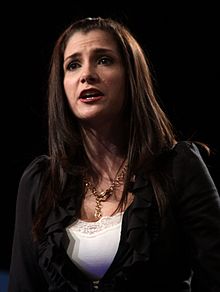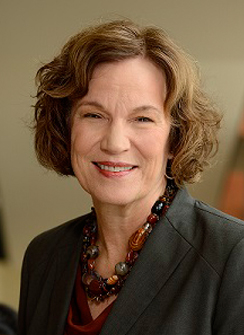S3E6 / He’s Got a Gun / April Zeoli, Dana Loesch, Jacquelyn Campbell, Michael Siegel
There’s an important link between intimate partner violence (i.e. domestic violence) and gun violence. The majority of mass shootings occurs in the context of intimate partner violence. And women are most likely to be killed by an intimate partner — a husband, ex-husband, boyfriend or ex-boyfriend — than by anyone else.
Note: This season of American Diagnosis was originally published under the title In Sickness & In Health.
This podcast was created by Just Human Productions. We’re powered and distributed by Simplecast. We’re supported, in part, by listeners like you.
Celine Gounder: Before we start, I want to warn our listeners that this episode contains descriptions of domestic violence. OK, let’s start the show.
Michael Siegel: Well, we know, that first of all, the federal laws are really not enforced.
Ruth Glenn: People had no idea what was happening in my home…
Michael Siegel These offenders are not able to purchase new guns, but they’re actually not required to surrender the guns that they already have.
Jacquelyn Campbell: I think it is it is incredibly important that we in this country face up to the issues of domestic violence, homicide and guns.
Celine Gounder: Welcome back to “In Sickness and in Health,” a podcast about health and social justice. I’m Dr. Celine Gounder. This season we’re looking at gun violence in America. Last time we looked at how ideas about masculinity influence violence… and why boys and men may be more likely to turn to guns… as tools for solving their problems. Today, we’re going to talk about the overlap between gun violence… and violence against women. There’s an interesting breakdown between men and women when it comes to homicides. Men are more likely to be killed by an acquaintance or perhaps a stranger. But women are more likely to be killed by someone they know intimately: a spouse… an ex… someone they’re dating… someone they have a child with. These are the men… killing women.
Celine Gounder: The homicide of women boils down to a domestic violence problem. But I should add that “domestic violence” is kind of an old-fashioned term. The newer term “intimate partner violence”… refers to those same controlling behaviors… physical, sexual and emotional violence… but includes people who might not currently be living together.
Celine Gounder: Intimate partner violence is a problem anywhere it happens. But it’s especially urgent here in America. About 1500 women die from intimate partner violence every year in the U. S. That’s more than anywhere else in the developed world. And guns are the most common weapon used in these crimes. The very presence of a gun in a home where there’s intimate partner violence increases the likelihood of a homicide by five fold. Today, we’re going to look at how guns increase the risk of deadly violence against women… and what can be done to get guns away from abusers before they kill.
Celine Gounder: Jacquelyn Campbell studies the relationship between intimate partner violence and guns. She’s a professor at the Johns Hopkins University School of Nursing.
Jacquelyn Campbell: Domestic violence homicide is the leading cause of homicide amongst women.
Celine Gounder: Women are most often murdered in the context of intimate partner violence says Jacquelyn. But many people don’t think of it as a public health issue.
Jacquelyn Campbell: In fact, it’s nine times the rate women are killed by a partner, husband, boyfriend, ex-husband, ex-boyfriend. Nine times the rate that they are killed by strangers.
Celine Gounder: So this idea that the greatest threat to women is that anonymous “stranger danger”… is kind of misguided. It’s the people closest to them… they may need to worry about.
Jacquelyn Campbell: …in today’s headlines, we worry a lot about mass shootings, etcetera, not realizing you’re much more likely to be killed by a husband, boyfriend than you are to ever be the victim of a mass shooting.
Celine Gounder: In fact, mass shootings… where four or more people are killed… most often occur in the context of intimate partner violence. They generally involve a man killing his partner, children and other relatives or friends. Jacquelyn’s research into intimate partner violence and homicide led to the creation of something called the Danger Assessment. It’s a tool that social workers and others can use to screen victims of intimate partner violence… to gauge how serious the threat to their life might be. For women… a history of intimate partner violence… is the number one risk factor for being murdered. And if a gun is present in the home… those odds… skyrocket.
Jacquelyn Campbell: What we found is that when the perpetrator owned a gun there was an increase in risk of five and a half over and above prior domestic violence.
Celine Gounder: The Danger Assessment takes several factors and then weighs them based on how strongly they each predict risk.
Jacquelyn Campbell: The first one is that gun ownership. The second very strong one was a combination of she had left him after living together, left him sometime in the past year, and he was highly controlling. So that combination is also one of the strongest risk factors.
Celine Gounder: Ruth Glenn is someone who’s experienced firsthand the consequences of this deadly combination.
Ruth Glenn: Correct, I’ve been telling my story for over 20 years, and I feel very, very fortunate to be able to tell my story in the hopes that it will influence and impact change.
Celine Gounder: Ruth grew up in California. It was her 16th birthday when she met Cedric, the man who would become her husband. He was 19.
Ruth Glenn: …we went to the same high school… He was in the neighborhood one day and we started talking…
Celine Gounder: The relationship was intense from the start.
Ruth Glenn: I think I desperately wanted somebody to be a part of my life, and I’m certain he did as well.
Celine Gounder: But then that initial intensity… soured into something else. He didn’t hit her, but he was controlling.
Ruth Glenn: I tell young people, in particular, to trust your instincts because even before the marriage, I knew something wasn’t quite right.
Celine Gounder: Then they got married and moved to Colorado. Both got jobs working as youth counselors. Ruth liked her job. And they were both working overtime to build the life they wanted.
Ruth Glenn: We had our son in football and baseball, and we had two cars and a lovely home and bills happened (laughs). … So there were times where we would even have two jobs, just to make sure that we “lived the middle-class dream.”
Celine Gounder: From the outside, it seemed like Ruth and Cedric were living that middle class dream.
Ruth Glenn: But immediately upon our marriage is when it got really, really quite bad.
Celine Gounder: Her husband’s need to control her only increased. Ruth felt like her husband was all-seeing: her every move… her every decision… nothing escaped him. Things escalated. Verbal abuse turned into threats against her… against her family… and then… physical violence.
Ruth Glenn: …there was one particular incident where I probably should have went to the hospital. He threw me into a wall, and I remember not being able to almost literally walk for a couple of weeks.
Celine Gounder: And there was always a gun.
Ruth Glenn: I had the gun pulled on me at least twice, but more importantly, he kept it visible where I could see it. … It sat on the refrigerator for years.
Celine Gounder: Ruth says he didn’t even have to make an outright threat with the gun.
Ruth Glenn: The threat of the gun being in the home and the possibility of what he could do with was far greater.
Celine Gounder: Then… one day… someone said something.
Ruth Glenn: She was a supervisor where I worked. I had called in yet again with some excuse about why I couldn’t work. … This particular time, she pulled me in and honestly, I thought I was going to get fired. And, she pulled me in and then that’s when she said that to me. She said, “I know what’s happening.”
Celine Gounder: Ruth had kept all this to herself. She and her husband both worked hard to keep the abuse secret from family and friends. Ruth was embarrassed… ashamed.
Ruth Glenn: Quite frankly, it was the first time anyone had ever said the words “domestic violence” to me, or had drawn attention to me directly that I was being abused. … She didn’t force anything other than to say, “I know what’s happening to you. I know. I’m here if you ever need anything.” And it was the start of this other journey that I embarked on.
Celine Gounder: It took Ruth another two years to leave her husband. She knew she had to leave. For her sake and her son’s. But those two long years were full of anxiety.
Ruth Glenn: I knew that if I left he was going to kill me. I just knew it. But I also knew that it was now not just me… I really had to think about my son. People on the outside say, “Well, you should have done that from day one.” “Yeah, well, yeah, I should’ve.” In fact, I did. It was also part of the reason I didn’t leave, as crazy as that sounds. But, you always have to think about what is the safest. Should I go out into the unknown or should I try to figure this part out?
Celine Gounder: Finally, the moment arrived when Ruth decided that the unknown was better than staying. She steeled herself. And she left.
Ruth Glenn: I snuck out “in the dead of the night,” my son and I.
Celine Gounder: Ruth was out of the house, but she couldn’t escape her husband. He found her… harassed her… stalked her.
Ruth Glenn: Six months after I left, he kidnapped me and held me at gunpoint for about four hours. I got away. He was charged with kidnapping and was due to go in court.
Celine Gounder: Ruth got a protective order against her husband. His gun was confiscated. But he managed to get ahold of another one.
Ruth Glenn: The week before he was due to go to court, he again found me, followed me, shot me, left me for dead.
Celine Gounder: He shot her three times.
Ruth Glenn: It was quite the miracle I was able to survive that
Celine Gounder: Cedric went on the run. Ruth lived in fear that he would come back to finish the job. Months later she got the news. Her husband had killed himself.
Celine Gounder: What was your reaction when you got the news that your former husband had died?
Ruth Glenn: The first one was relief. …because I didn’t have to hide anymore. I was in hiding for four months while he was on the run. I didn’t have to live in fear, I was always afraid that even if I opened my front door, I’d get shot again.
Celine Gounder: Researchers agree: When it comes to preventing homicides related to intimate partner violence, the best thing to do… is to take guns out of the equation. But from a legal and enforcement angle, that solution is deceptively simple.
April Zeoli: If our goal is to remove firearms, is to make firearms unavailable to those people, then doing nothing clearly is not the way to go.
Celine Gounder: April Zeoli is a professor at Michigan State University. She points out that even when there’s a prohibition on someone buying a gun because they have a criminal record or a restraining order — someone like Ruth’s husband — there are ways around it.
April Zeoli: …the catch is that in many states you can buy a gun from a private seller. Someone who doesn’t have a firearm store. They’re your neighbor, they’re the guy down the street. … Private sellers in many states don’t have to run a background check in order to sell you a firearm. So even if you are prohibited from purchase, if you buy from a private seller in one of those states, there isn’t going to be a background check.
Celine Gounder: But some states are taking the steps to make sure everyone who wants to buy a gun undergoes a background check.
April Zeoli: For example, Michigan has what is called a permit to purchase system, where if you want to buy a handgun you have to go to local law enforcement, and they’ll run the background check. They’ll see if you’re okay to buy a gun. If you are, you get this permit, and you can go and buy your gun regardless of whether it’s from a private seller or a licensed firearms dealer.
Celine Gounder: April says this system saves lives.
April Zeoli: Well a recent study that I did found that when a state has that permit to purchase system in place there’s an 11% reduction in intimate partner homicides, so that’s total intimate partner homicides — male or female victims. So, that’s quite a big reduction.
Celine Gounder: Her research also shows that when abusers are required to turn in their guns, intimate partner violence homicides go down even more. But there’s a problem. Take this example: Someone is convicted of domestic abuse. As a felon, federal law says they’re not allowed to buy or possess a firearm. But who’s making sure they don’t still have a gun? No one. Basically, it’s an honor system.
April Zeoli: Everybody needs to coordinate on how this dispossession is going to occur. So it can be complicated for jurisdictions to put this into place, but some are doing what looks to be a very good job.
Celine Gounder: California in particular.
April Zeoli: Detectives would go out… and would serve that restraining order and would explain the firearm prohibition… You know, “this is what the domestic violence restraining order says, I know it’s a drag, but you have to turn in the gun. If you don’t, these are the penalties for not turning in your gun.” And what the research showed was that they actually got quite a lot of firearms from these people, and there was no increase in violence over the generality of serving a restraining order.
Celine Gounder: OK, so there’s a patchwork of state laws regulating the possession of firearms for felons. But what about some nationwide standard at the federal level?
Michael Siegel: There are several problems with the current federal law.
Celine Gounder: This is Michael Siegel. He’s a professor at the Boston University School of Public Health.
Michael Siegel: There are two major federal laws that regulate possession of firearms by intimate partner violence offenders. The first law basically says that if you are convicted of a misdemeanor crime of domestic violence, that you are not eligible to purchase or possess a firearm. The second law says that if you are the subject of a permanent restraining order related to intimate partner violence, that you’re also not allowed to own or purchase a firearm.
Celine Gounder: OK. Misdemeanor crime of domestic violence or a permanent restraining order for domestic violence…. and you can’t buy a gun from a licensed gun dealer. But, you can still buy a gun from a private seller or gun show in states that don’t require universal background checks. That’s the “gun-show loophole.” And… Michael points out that someone with a temporary restraining order is still allowed to buy a gun.
Michael Siegel: This is the most dangerous time for a woman. It’s that period where perhaps she’s actually been threatened, and so she goes out to try to get a restraining order. … It’s that first 24 or 48 hours that are really critical. And so if the law excludes that period of time, then that’s really excluding the most important and most threatening period of time.
Celine Gounder: Federal law has a narrow definition of who can be a perpetrator of domestic violence. The way the federal law is written… only a spouse, or an ex-spouse, or someone who you’ve lived with, or had a child with counts. That means that if you’re just dating someone… technically… under the law… that intimate partner… can’t commit domestic violence against you. It’s what’s called the “boyfriend loophole.”
Michael Siegel: For women who are dating someone who becomes a threat, even if they successfully get a restraining order … and even if that person has committed violence and is convicted of a misdemeanor, that person actually is still allowed to carry the firearm under federal law. So that’s a glaring omission.
Celine Gounder: Michael says another major problem with federal law is how it’s enforced… namely that it’s not. Federal law can only be enforced by a federal law officer. Unless they have their own laws… states… don’t have a way to enforce the federal protections… even if they’re on the books. There’s another solution we haven’t talked about. Giving women… who are victims of intimate partner violence… guns to defend themselves.
Dana Loesch: Here’s a message to every rapist, domestic abuser, violent criminal thug, and every other monster who preys upon women…
Celine Gounder: That’s Dana Loesch, an NRA spokeswoman and conservative talk show host.
Dana Loesch: You’re life expectancy just got shorter… ‘cause there’s a very good chance your next target will be armed, trained and ready to exercise her right to choose her life over yours.
April Zeoli: There is no research evidence that a victim having a firearm makes her safer.
Celine Gounder: April Zeoli again.
April Zeoli: What we do find in the research is that when there is a firearm in the house, it doesn’t matter who it belongs to, it is more likely to be used by the male intimate partner against the female intimate partner. So just having that firearm around, if your abuser gets access to the firearm, your risk of intimate partner homicide increases by five fold. So it is not recommended right now with the research suggesting what it does that… victims of intimate partner violence obtain firearms. It doesn’t look like it increases their safety at all.
Celine Gounder: Ruth Glenn, the woman who survived three gunshots, doesn’t think it’s realistic.
Ruth Glenn: If you have a domestic violence abuser where you may need to think to use a gun on them, do you think that they would allow you the space and time to get the training that you needed to have you hide a gun? So, as easy as it sounds to say that, it’s very concerning because I don’t think we consider everything.
Celine Gounder: The other problem is finding the will to shoot their attacker. This isn’t a stranger we’re talking about… this is someone they’re very close to.
Ruth Glenn: One of the things that we forget about women and victims of domestic violence, when they’re in the situation, they’re not in it because they want the abuse, right? They’re in it because they love somebody. So you’re asking them to pull a gun and shoot somebody they love when they haven’t left. They haven’t left the situation.
Celine Gounder: After her husband’s suicide, Ruth kept going. She raised her son. She re-established a relationship with her mother-in-law.
Ruth Glenn: I got through that and went back to school, which had always been a desire of mine, and kept my job, which I always felt very strongly about.
Celine Gounder: Today, Ruth is using her experience to make a difference. Ruth is the CEO of the National Coalition Against Domestic Violence.
Ruth Glenn: About four years ago, this opportunity presented itself, to become the leader of this organization, and I grabbed it, and here I am now.
Celine Gounder: What researchers like April, Michael and Jacquelyn have found… and Ruth experienced firsthand… is that to save women’s lives… we need to divorce gun violence from intimate partner violence… and to do that… we need to get guns out of the hands of offenders. We need to close the loopholes. We need to act as soon as there’s a temporary domestic violence restraining order in place. We need to broaden our definitions to include dating partners. And we need state-level laws and -enforcement to make this happen.
Celine Gounder: We can’t say with certainty that a law would’ve prevented the attack against Ruth. But research shows that states that do require abusers to hand over their weapons… see a significant drop in intimate partner violence-related homicides.
Celine Gounder: Next time… we’re going to further complicate the problem of intimate partner violence and gun violence. We’re going to bring you the stories of women who’ve tried to use guns in self-defense against abusive partners… and how that played out for them.
Celine Gounder: If you or someone you know is experiencing intimate partner violence, you can call the National Domestic Violence Hotline at 1-800-799-7233. That’s 1-800-799-SAFE. Callers can reach someone 24 hours a day, 365 days a year. Hotline advocates answer questions, provide safety planning and information as well as directly connect callers to domestic violence resources available in their local calling area. All calls to the hotline are confidential and anonymous. Again, that number is 1-800-799-SAFE.
Celine Gounder: Today’s episode of “In Sickness and in Health” was produced by Zach Dyer and me. Our theme music is by Allan Vest. Additional music by The Blue Dot Sessions. You can learn more about this podcast and how to engage with us on social media at insicknessandinhealthpodcast.com, that’s insicknessandinhealthpodcast.com. If you like what you hear, please leave us a review on Apple Podcasts. It helps more people find out about the show! I’m Dr. Celine Gounder. This is “In Sickness and in Health.”








